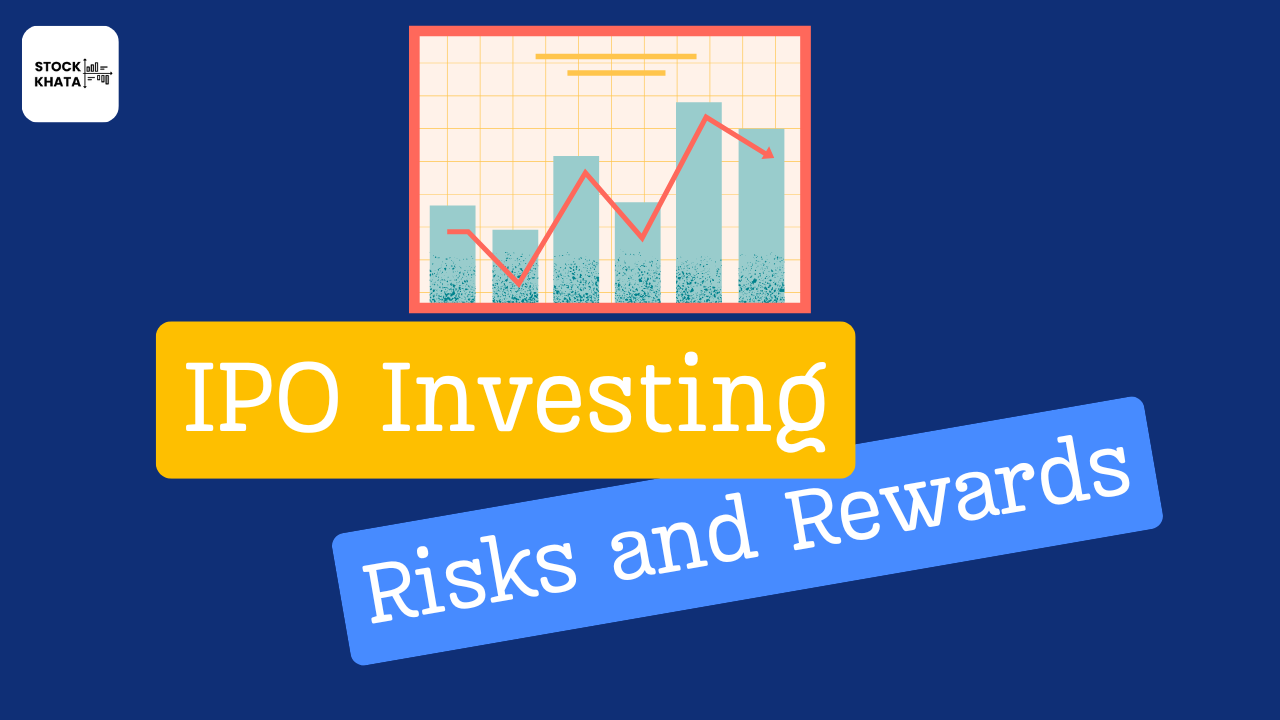Are you excited about the next big Initial Public Offering (IPO)? IPOs are an excellent opportunity to invest in companies as they transition from private to public. But before you jump in, it’s essential to understand both the risks and rewards involved in IPO investing.
In this blog, we’ll break it down for you and help you decide if IPO investing is the right choice for your portfolio.
What is an IPO?
When a private company decides to go public and sell its shares to the public for the first time, it launches an Initial Public Offering (IPO). This marks the company’s entry into the stock market, allowing everyday investors like you to own a piece of the company.
Why IPOs Are Exciting for Investors
1. Early Entry Opportunity
- IPOs give you a chance to invest in a company at its earliest public stage, which can mean high growth potential.
- Some IPOs have delivered exceptional returns to investors. For instance, companies like Google and Facebook provided significant profits to early investors.
2. Chance to Ride the Growth Wave
- Investing in an IPO can position you for long-term growth if the company performs well in its industry.
- Industries like tech and renewable energy are buzzing with IPOs that can lead the future.
3. Brand Affiliation
- Owning shares in a brand you love, like Zomato, Nykaa, or Tesla, can be personally exciting.
The Risks of IPO Investing
While the rewards sound amazing, IPOs come with their own set of challenges.
1. Lack of Historical Data
- Unlike established companies, IPOs often lack a public track record, making it harder to predict future performance.
2. Volatility
- IPO stocks can experience extreme price swings, especially in the first few weeks of trading.
- For example, some IPOs have seen their stock prices drop significantly after their debut.
3. Hype vs. Reality
- Sometimes, the buzz around an IPO can inflate its valuation, leading to overpricing.
- Companies might struggle to meet the high expectations set during the IPO process.
Tips for Successful IPO Investing
Here are some actionable tips to help you navigate IPOs confidently:
1. Do Your Homework
- Read the company’s prospectus to understand its business model, financials, and risks.
- Check its competition and growth potential in the industry.
2. Avoid FOMO (Fear of Missing Out)
- Don’t invest solely based on hype or media coverage.
- Be objective about the company’s true potential.
3. Diversify Your Portfolio
- Don’t put all your money into IPOs. A diversified portfolio helps manage risk.
4. Understand the Lock-In Period
- Some IPOs come with a lock-in period, preventing early investors from selling shares immediately. Be aware of this.
Success Stories: IPOs That Paid Off
- Google (2004): Investors who bought shares at $85 saw significant long-term returns.
- Infosys (1993): A legendary Indian IPO that turned small investments into fortunes.
The Bottom Line
IPO investing can be a thrilling way to grow your wealth, but it’s not without its challenges. By understanding the risks and doing your research, you can make informed decisions that align with your investment goals.
So, are you ready to dive into the world of IPOs? Share your thoughts or questions in the comments below!
FAQs on IPO Investing
Q1: Should I always invest in IPOs?
A: Not necessarily. Evaluate each IPO based on the company’s fundamentals and your risk tolerance.
Q2: How do I apply for an IPO in India?
A: You can apply for IPOs through your Demat account using apps like Zerodha, Upstox, or Groww.
Q3: Can I sell IPO shares immediately?
A: Yes, but it’s better to wait if you believe in the company’s long-term growth.
If you found this blog helpful, don’t forget to share it with your fellow investors! Subscribe to our newsletter for more stock market insights.
Disclaimer:
The information provided in this blog is for educational and informational purposes only. It should not be considered as financial or investment advice. Stock market investments, including IPOs, carry inherent risks, and past performance is not indicative of future results.
Readers are advised to conduct their own research, consult with a certified financial advisor, and carefully evaluate their risk tolerance before making any investment decisions. The author and publisher of this blog are not responsible for any losses or damages resulting from the use of this information.
Invest wisely and at your own discretion.
